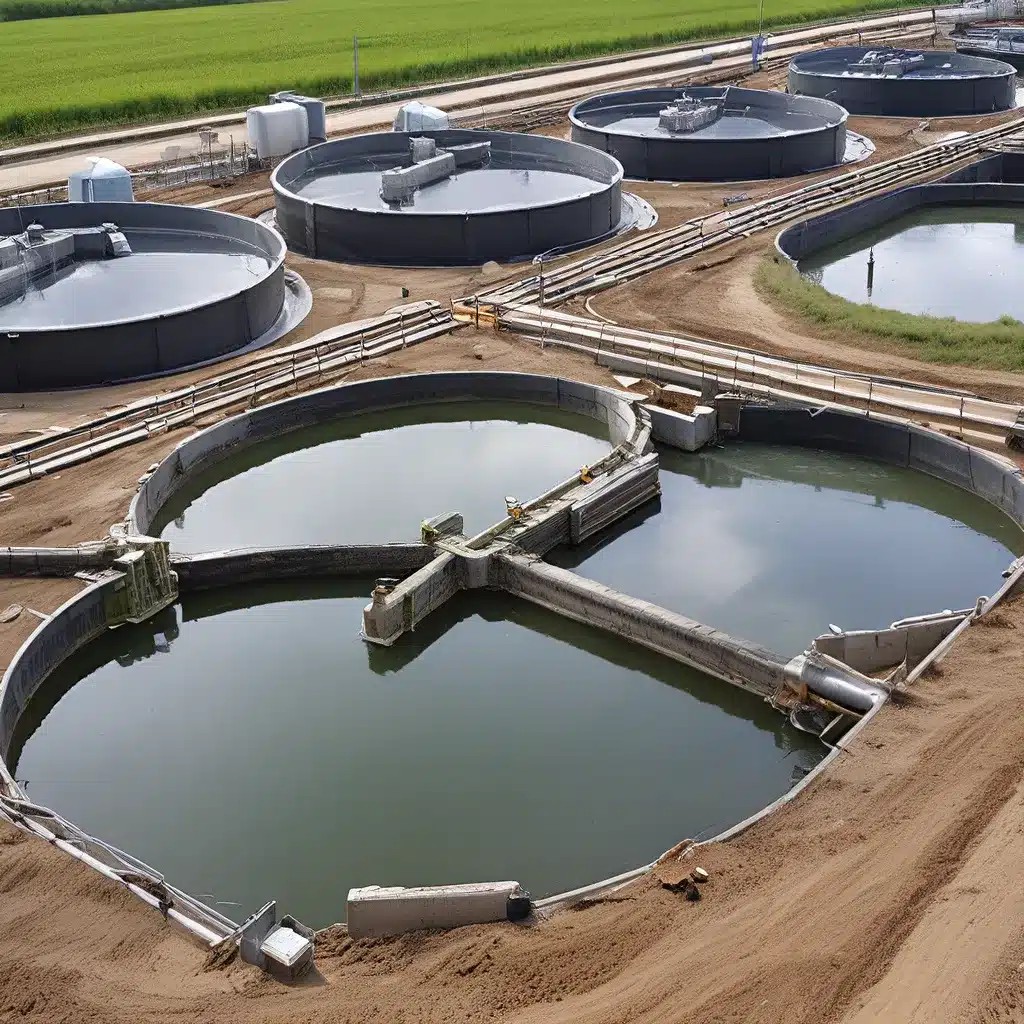
As someone who’s always been fascinated by the intricate web of water management, I can tell you that the future of wastewater treatment is both exciting and crucial. We’re living in a time when traditional methods are proving increasingly inadequate, but innovative solutions are emerging that offer a promising path forward.
Let me take you on a journey through the world of sustainable wastewater treatment – where nature-inspired approaches, cutting-edge technologies, and collaborative efforts are redefining how we tackle this vital challenge.
Embracing Nature’s Solutions
If you ask me, one of the most promising directions in wastewater management is the incorporation of ecosystem-based approaches. Instead of relying solely on energy-intensive, centralized treatment plants, we’re learning to harness the incredible power of natural systems.
As research has shown, protecting and restoring wetlands, forests, and other natural habitats can work wonders in filtering and purifying water. These ecosystems have an innate capacity to regulate water cycles, remove pollutants, and mitigate the effects of floods and droughts. By preserving and even enhancing these natural processes, we can reduce our reliance on costly and resource-intensive infrastructure.
Take the case of Berlin’s biodiversity preservation strategy, for instance. The city actively encourages businesses to incorporate nature-based solutions on their premises, recognizing the holistic benefits to water resources, biodiversity, and overall environmental health. It’s a win-win for both the city and its residents.
Harnessing the Power of Collaboration
But sustainable wastewater management isn’t just about embracing natural solutions – it’s also about fostering collaborative and participatory decision-making processes. After all, effective water resource management requires the engagement and buy-in of diverse stakeholders, from local communities to government agencies and private enterprises.
As the NRDC has highlighted, multi-sector partnerships and transparent communication platforms are essential in developing inclusive solutions. By bringing together different perspectives and areas of expertise, we can create water management strategies that truly address the needs and concerns of all.
Just look at the success of Thames Water’s Smarter Water Catchments initiative. By engaging with local farmers and encouraging water-sensitive practices, the utility has been able to improve water quality and strengthen the resilience of the entire watershed. It’s a shining example of how collaborative approaches can make a real difference.
Building Climate-Resilient Systems
Of course, as we reimagine the future of wastewater treatment, we can’t ignore the looming challenge of climate change. Rising sea levels, shifting precipitation patterns, and more extreme weather events are all putting unprecedented stress on our water infrastructure.
That’s why developing climate-resilient water management systems is absolutely crucial. As the experts have suggested, this might involve incorporating climate risk assessments into water resource planning, investing in both green and grey infrastructure to reduce vulnerability, and learning from innovative case studies that demonstrate effective adaptation strategies.
Just imagine a future where our wastewater treatment systems not only clean the water but also actively contribute to mitigating the effects of climate change. It’s an ambitious goal, to be sure, but one that’s well within our reach if we approach it with creativity, collaboration, and a deep respect for the natural world.
A Sustainable Future Awaits
As I reflect on the exciting possibilities in sustainable wastewater management, I can’t help but feel a sense of cautious optimism. We’re facing some formidable challenges, no doubt, but the solutions are out there – if we’re willing to think outside the box and embrace a more holistic, nature-based approach.
And who knows, perhaps one day we’ll look back on this period as a pivotal turning point in the history of water resource management. A time when we recognized the true value of our precious water, and took bold steps to ensure its long-term sustainability and resilience.
So, my friends, let’s roll up our sleeves and get to work. The future of our water, and our planet, depends on it. After all, as the team at Inland Waters likes to say, “When it comes to water, there’s no time to waste.” Let’s make it happen!


